The Fears and Realities of MS Progression
To learn more about the experiences of people living with multiple sclerosis (MS), we conducted our 9th MS In America Survey. The survey was completed by more than 4,500 people with MS, providing a unique understanding of many aspects of life with MS, including symptoms, triggers, medical care, quality of life, and more.
Without a cure, people living with MS face a very real fear of what MS progression will look and feel like over the course of their life. The results of the survey show that those who experience the emotional and physical changes that MS can bring are not alone.
Changes since initial diagnosis
An initial MS diagnosis can bring on a wide range of emotions. Those emotions can evolve and sometimes intensify as MS progresses and the specific diagnosis changes. Many respondents noted a change from an original RRMS diagnosis to SPMS or PPMS later on.
Assisted devices are helping many
We often hear from our community members that they are resistant to starting to use assistive devices. However, small assistance can make day-to-day life much easier and provide more mobility than struggling on your own. As the results show, many people with MS are using assistive devices of some kind.
Falls can cause more than bruises
Unfortunately, falling is a common occurrence when you have MS. Not only can these falls cause minor to serious physical injuries, but they can also have an impact on your mental and emotional state. MS falls are most commonly caused by coordination issues (78 percent), muscle weakness (47 percent), and fatigue (37 percent).
Confidence levels hint at underlying anxiety
Someone’s confidence level in managing their MS can affect their mental health and lead to anxiety. We hear community members talk about a lower or changing level in confidence due to progression and changes in symptoms, lack of communication from doctors, and varying treatment experiences. There are many aspects to balancing daily life with MS, and it is common to feel like you could or should be doing more.
Both physical and emotional symptoms are common
People living with MS will experience a wide range of symptoms over the course of their lives. These challenges will likely be both physical and mental/emotional. Many symptoms, like the disease itself, can progress over time or ebb and flow in severity. The symptoms may look slightly different for everyone, but the most common categories reported by survey respondents are listed below.
The 9th Multiple Sclerosis In America Survey was conducted online from March through June 2021. The survey was completed by 4,525 people.
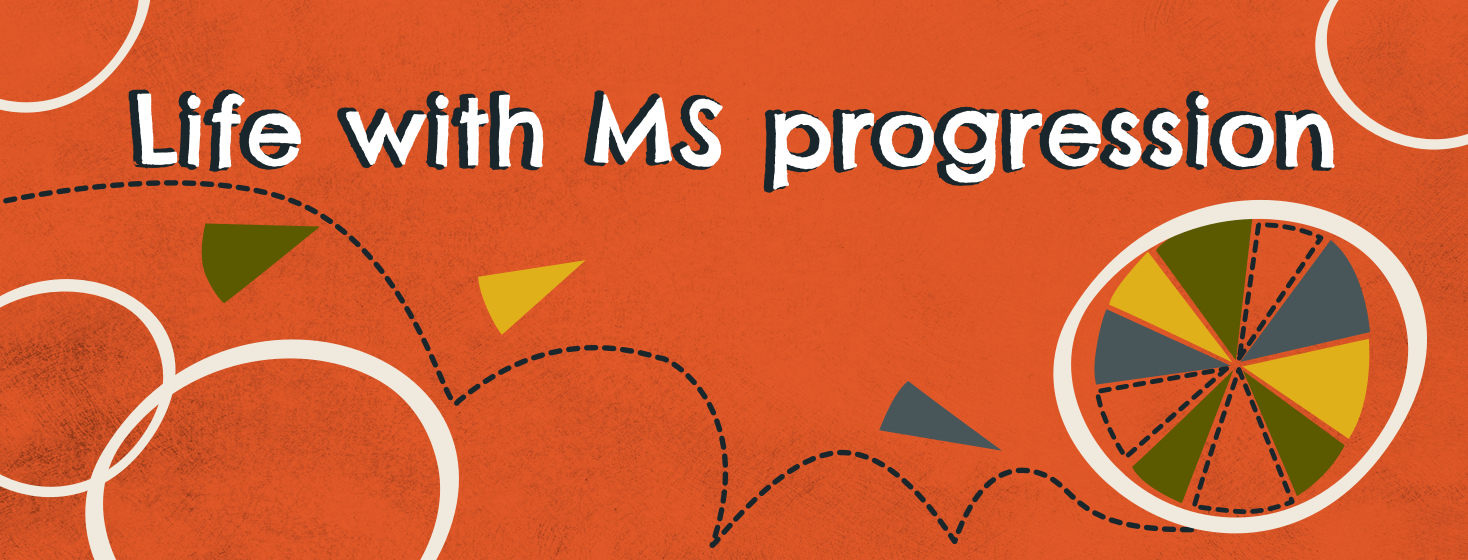
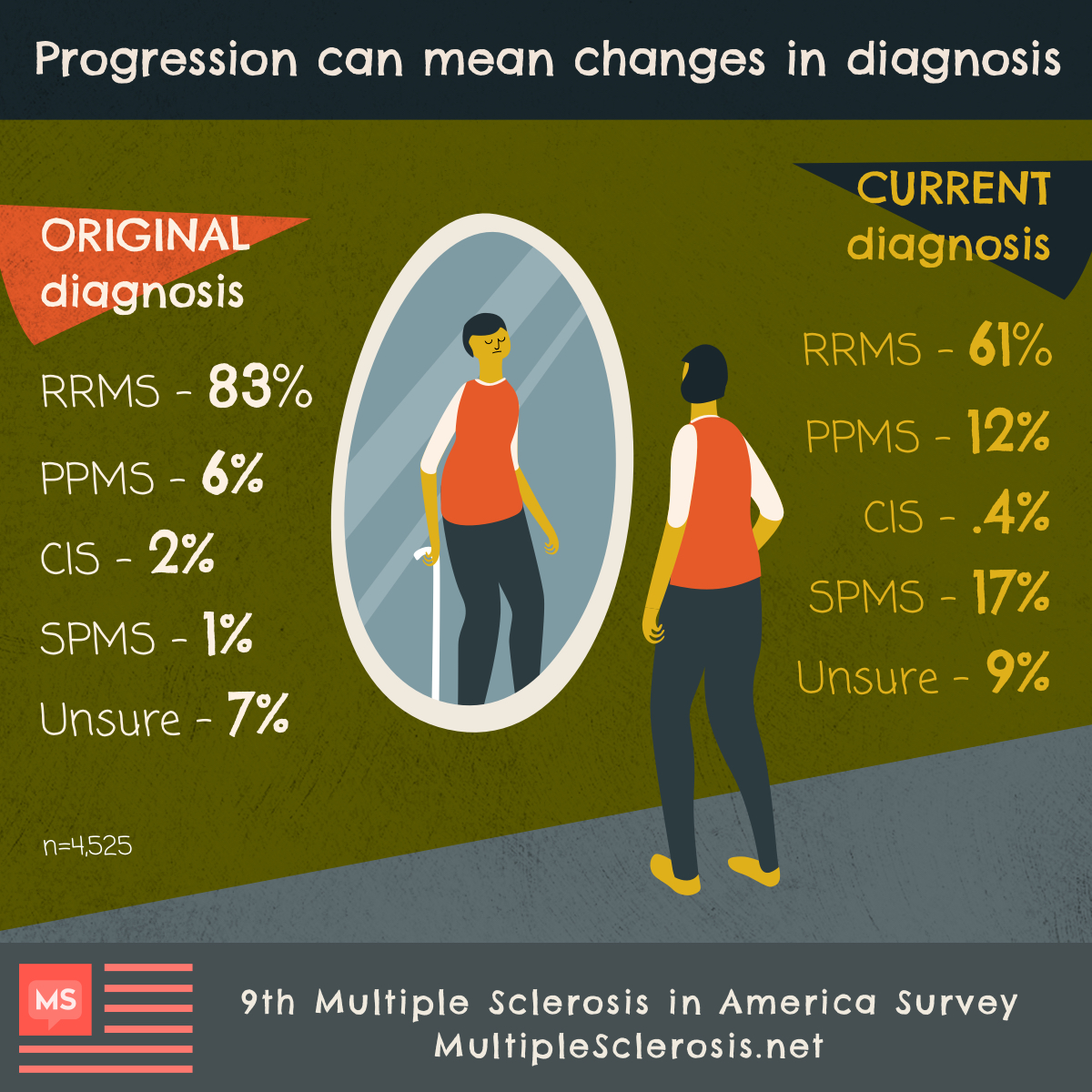
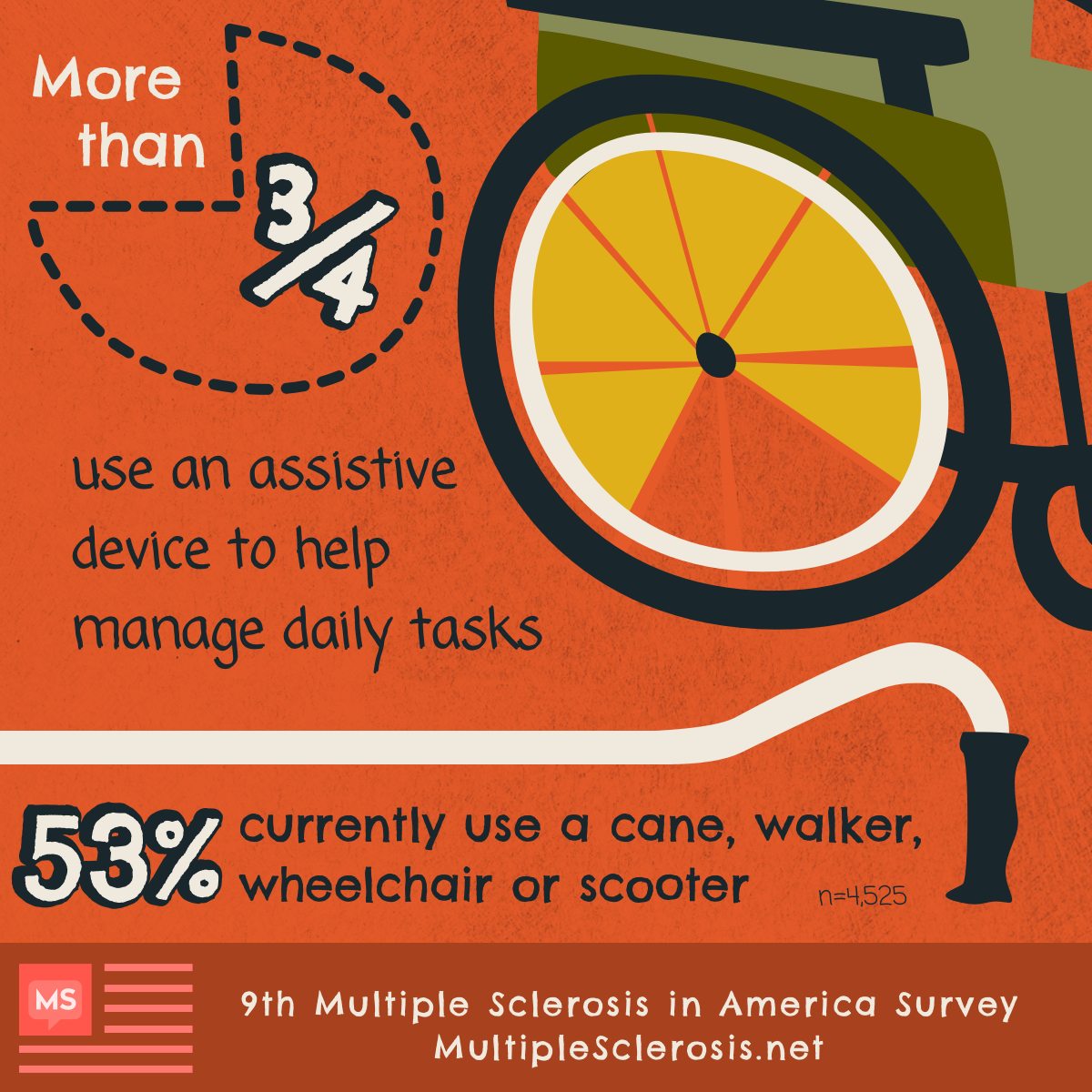
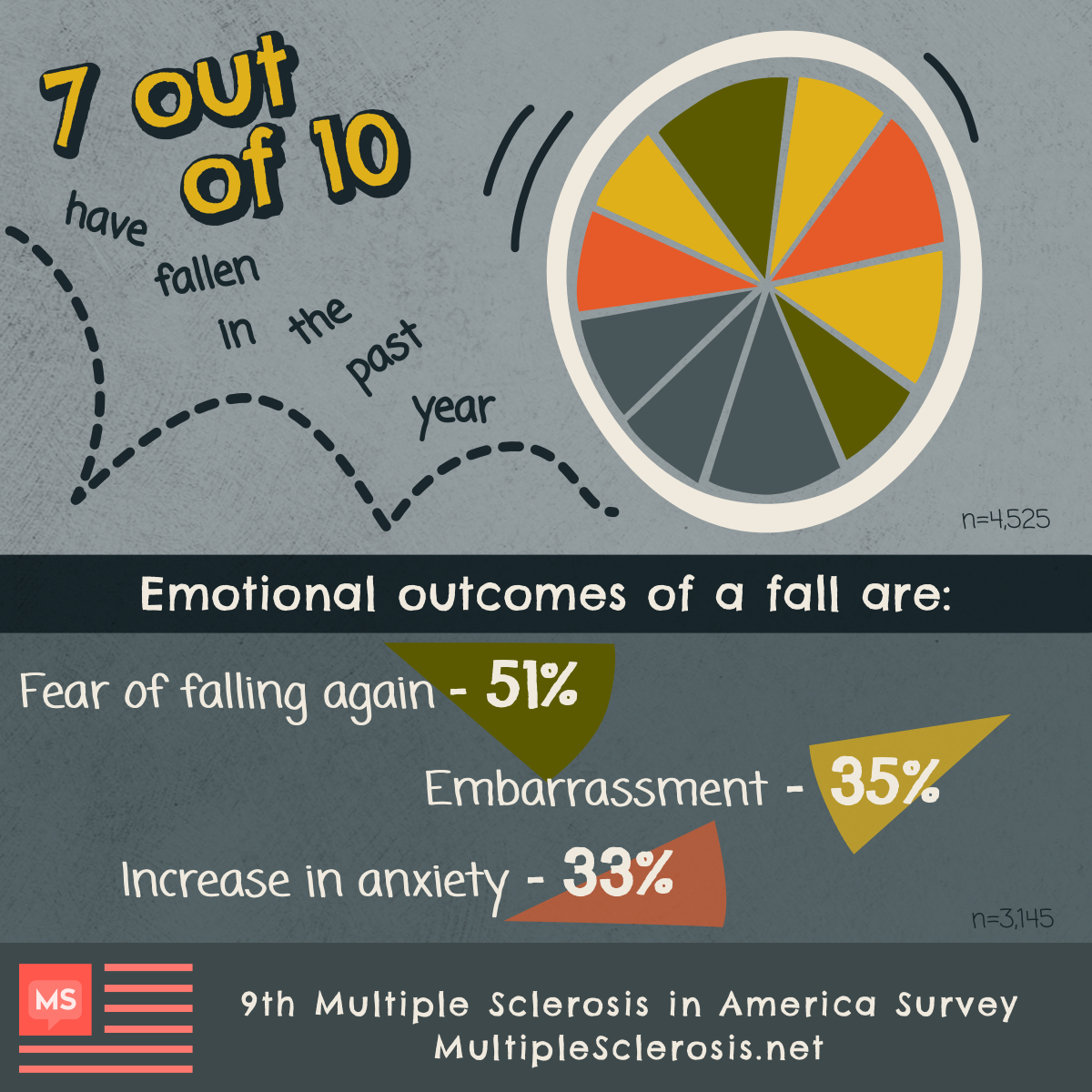
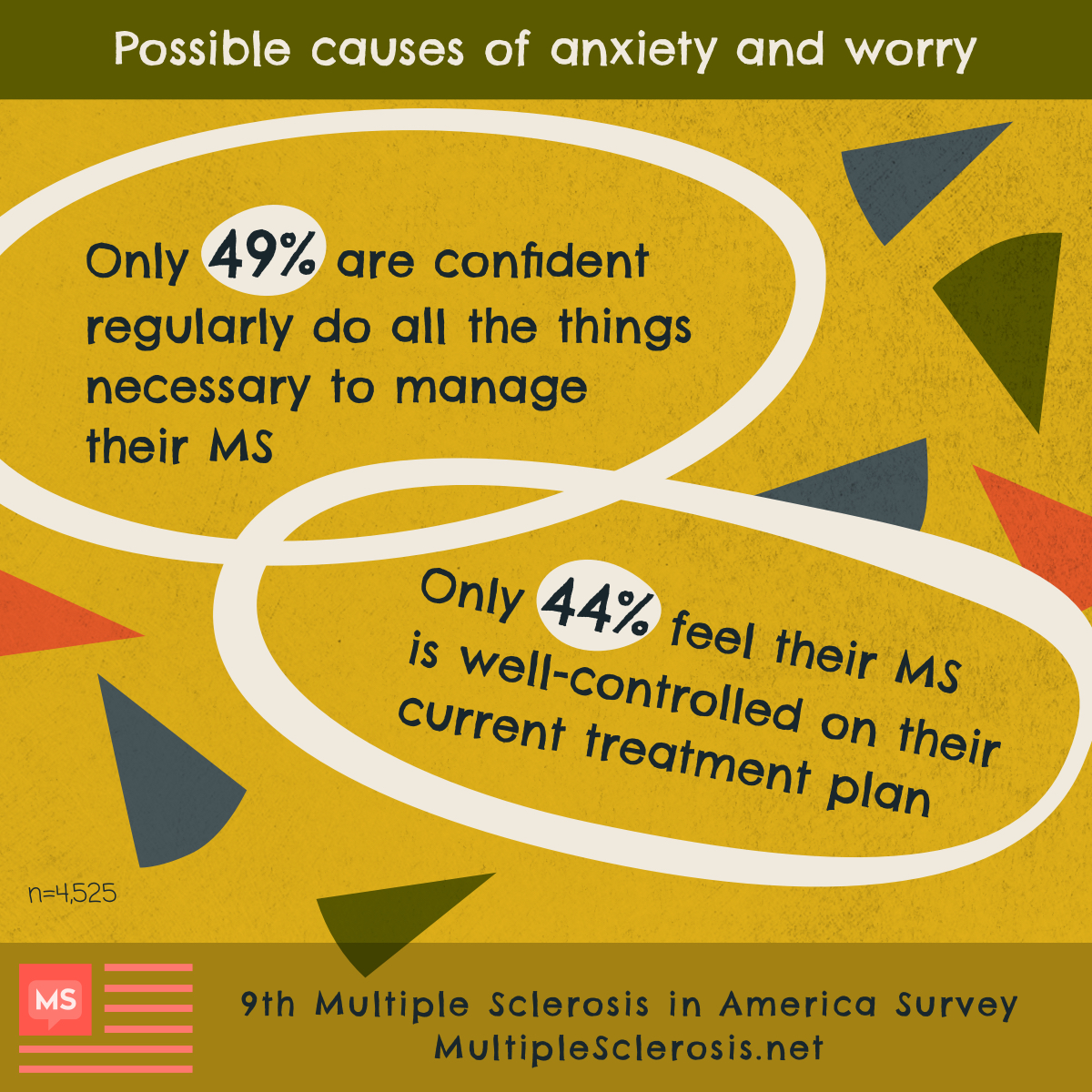
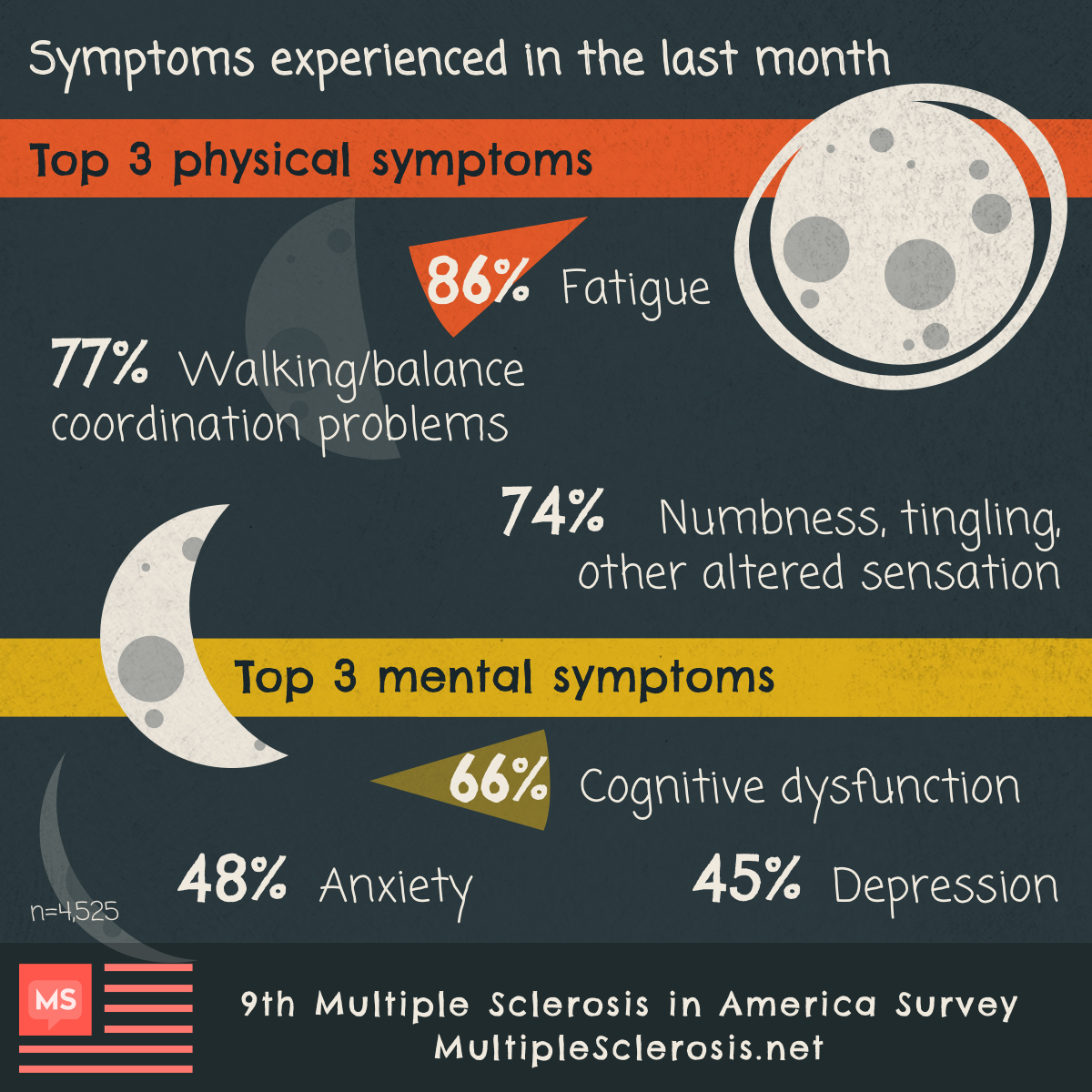
Join the conversation